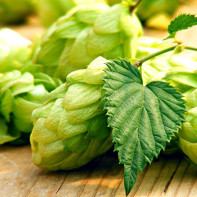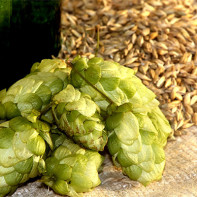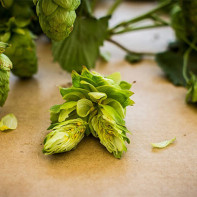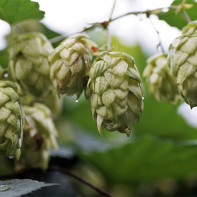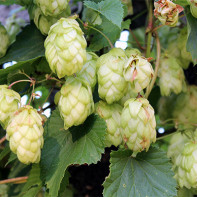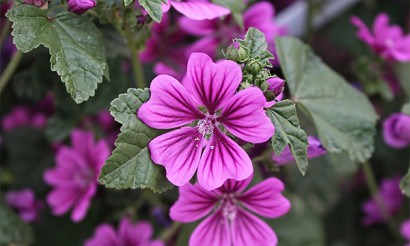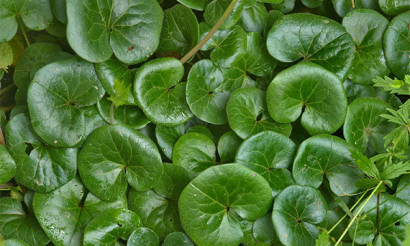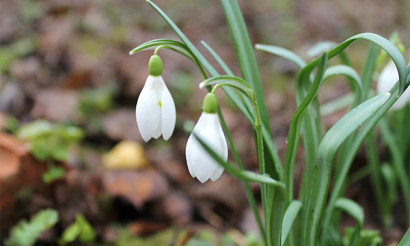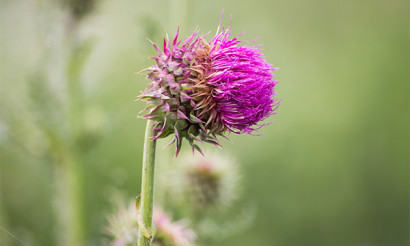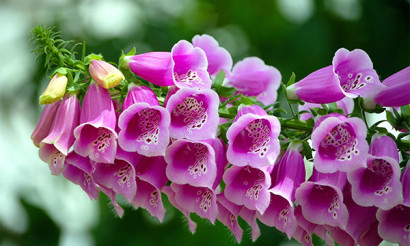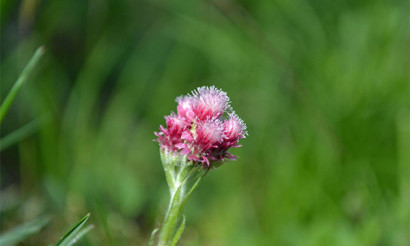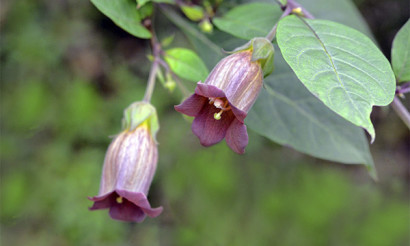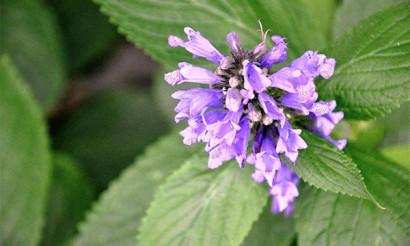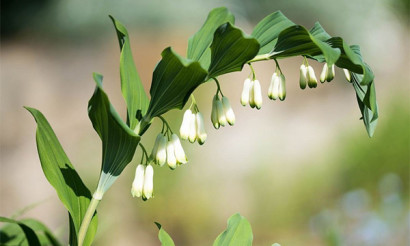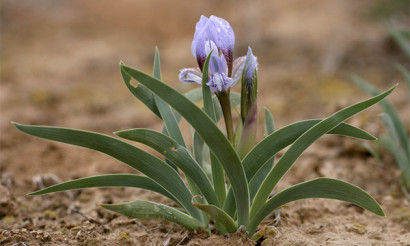Hop cones: therapeutic properties and contraindications
Many people associate hops with brewing. But in fact, the common hop is also a medicinal plant, and its unique properties have been known since antiquity, but only recently they have been confirmed by scientific research.
- Botanical description of the plant
- Where hops grow and how they are used
- Chemical composition
- Collection and storage
- Therapeutic properties of hop cones
- For Women
- For men
- For Pregnancy
- For children
- Hop cones in folk medicine
- Kinds of medicinal compositions
- Infusion
- Tincture
- Decoction
- Tea
- Salve
- Oil
- Cosmetic applications
- Contraindications to use
A botanical description of the plant
The scientific name of the common hop is Humulus lupulus L. It is a perennial herbaceous plant, which from a botanical point of view is a climbing liana. Hops have a powerful and strongly branched creeping rhizome, with thick roots that grow quickly. The underground part of this liana overwinters well and can generally grow in one place for up to 20 years.
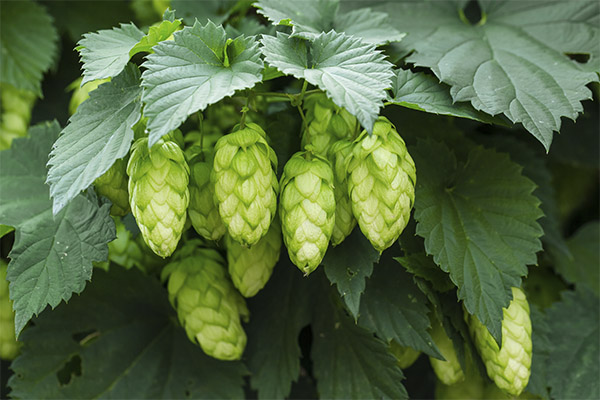
The above-ground part is covered with small hooked spines, annual shoots of tetrahedral shape. The shoots grow to a height of 3-6 m. The shoots grow very fast. The shoot can grow to 20 cm in a day. The shoots are covered with rough leaves with glandules.
Hops are a biparental plant, which means that there are male and female individuals. And the flowers that form on them are different. The hop cones are the flowers that form on female plants (and not copulas, as many people used to think). These dense buds average at least 20 flowers (and sometimes as many as 60). On the underside of these cones are lupulin glands, which contain bitter substances (discussed below).
On male plants there are no cones, only inflorescences in the form of leafless panicles. It is interesting that very often only female plants are bred for industrial use. This is to ensure that they are not pollinated and that they do not bear fruit. The fact is that the appearance of fruits reduces the value of hops, because on its cones in such cases the number of lupulin glands decreases.
Where hops grow and how they are used
Common hops are widespread in the wild in Europe and North America and are also found in some parts of Africa. But there are very few hops in Central Asia. In nature, hops often grow near rivers and in steppe and forest areas. But nowadays it is much easier to find its cultivated varieties.
Hops are grown on an industrial scale in almost all European countries, Mexico and the United States. Over the centuries many varieties of the plant have been developed. They differ in the shade of the stem, flowering and ripening time as well as the amount of bitterness in the buds. It is also possible to cultivate hops in the conditions of the homestead plot - it requires fertile soil and protection from northern winds, but in general its cultivation should not cause any particular difficulties.
On the plot, hops as a creeping plant are often used in landscape design - it looks good on slopes, poles of arbors and pergolas. Hop cones are widely used in the food industry, not only in the brewing industry, but also in the baking industry, where they are used to make liquid yeast for certain types of bread. The composition of hop cones includes tannins - they prevent the souring of beverages and products made from it.
And in ancient times hop cones were often used to dye fabrics, while its long stems were used to make fibres from which later ropes and rough sacking were made.
Chemical composition
The hop cones contain unique substances such as lupulin and other hop acids. Their chemical composition is quite diverse. It includes:
- Polyphenolic compounds, including flavonoids, which have antioxidant and anti-inflammatory activity.
- Phytohormones, mainly estrogen-like substances.
- The essential oil is light yellow in color, which itself has a rather complex chemical composition. Its main active substances are myrcene and myrcenol, which have a pleasant fragrance. It also contains acetic and formic acid esters, linalool, geraniol, etc.
- Bitterness (or resinous substances). The cones contain about 90 compounds of this kind, including lupulin, humulon and others. The composition of hop cones may contain up to 26% of bitterness; their quantity depends on the particular variety.
- B vitamins which have a positive effect on the nervous system and intensify metabolic processes.
- Vitamin PP, which has a beneficial effect on the condition of blood vessels.
- Ascorbic acid, which is also an antioxidant and also strengthens the immune system.
- The alkaloid-like substance is humulin.
- A large amount of salts of iron, potassium and calcium, which are involved in many vital biochemical processes in the human body.
It is the presence of these substances that determines the therapeutic properties of hops. For example, flavonoids as well as vitamins C and PP strengthen blood vessels and have an anti-ulcer effect. The bitterness has a beneficial effect on digestive processes. Polyphenolic compounds neutralize the negative effects of free radicals and inhibit oxidative processes that could lead not only to premature aging, but also to the development of various inflammatory processes and even atherosclerosis and the growth of tumors of various kinds.
Collection and storage
For medical purposes, mainly hop cones, that is, the inflorescences of female plants, are used. In most regions they are harvested in September, when the inflorescences should have finished growing. This is when the concentration of bitterness and lupulin in particular is believed to be at its highest. Do not wait too long to harvest, because there is a risk that the yellowed cones will start to fall apart and part of the lupulin will be lost.
The hops are harvested by hand only. The cones are removed along with the stalks. They are dried at room temperature in a well-ventilated room, spread out on paper (but not on newspapers, so that the printer's ink does not absorb) or on a light colored cloth. You can also dry outdoors, but only in the shade. The whole process takes a few days. The ready raw materials are kept in paper bags, so that aromatic substances don't volatilize, in a normal humidity level, in a cupboard, away from sunlight. Under UV light begins oxidizing processes, there is an unpleasant smell due to the destruction of some substances, deteriorates taste, but most importantly - raw material rather quickly loses its medicinal properties.
Therapeutic properties of hop cones
Pharmacological properties of hop cones are very diverse. In particular, preparations based on them:
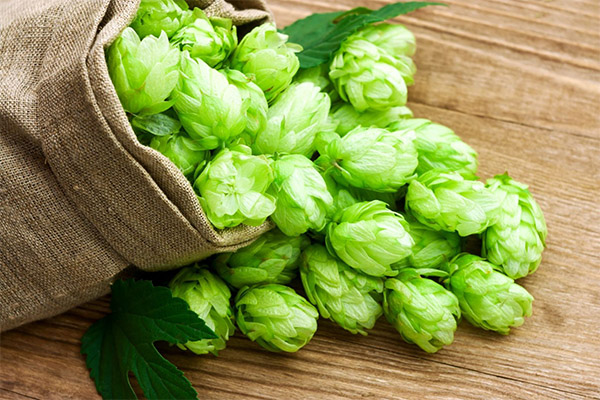
- Have anti-inflammatory properties.
- Accelerate tissue regeneration.
- Normalize the condition of blood vessels and improve blood counts.
- Have a diuretic effect (its intensity is largely determined by the hop variety).
- Increase the production of gastric juice without increasing its acidity.
- They speed up the metabolism.
- Prevent the development of cirrhosis of the liver (so act bitter acids hop), in general, the plant has hepatoprotective properties, protecting this organ from the negative effects of alcohol.
- Have antiseptic properties. The bitterness contained in the cones inhibits the development of some fungal cultures and destroys others, they also have a detrimental effect on many gram-negative bacteria and even on some acid-resistant microorganisms. However, cone decoctions themselves cannot replace antibiotics obtained industrially, but they enhance their effect.
- They have a sedative effect on the CNS (not only the bitterness of lupulin is responsible for this, but also other components of the essential oil). However, the sedative effect of this plant is not very strong, especially since it is also caused by the volatile alcohol, and its concentration increases gradually after drying, reaching a maximum only at the end of storage. Therefore, to enhance the sedative effect hop cones are often used in combination with other plants, such as valerian.
- They have antispasmodic effects, including beneficial effects on the intestinal muscles.
Studies have also shown that hop cones have a positive effect not only on lipid, but also on water metabolism.
For women
In addition to the above properties, women are interested in hop cones because of the ability of this plant to treat gynecological diseases and even increase breasts. The fact is that in these cones in large quantities there is a hormone-like substance - phytoestrogen 8-PH. It is used for the production of medicines and various cosmetics. The substance acts in the same way as the female hormone estrogen.
Apparently, this is its effect and explains the ability of hop cones to increase the breasts. In folk medicine, an infusion is used for this purpose - 1 tbsp. hop cones (you can buy them in the pharmacy) per glass of water. Bring the remedy to a boil and leave on low heat for 10-12 minutes. After that, the drink left in a container under a closed lid for 6-8 hours. Ready to drink the product twice a day for half an hour before a meal, 1/2 cup. Course duration is at least 2-3 weeks. After this period of time the first results will be noticeable.
It is believed that by using this infusion you can increase your breasts by 1-2 sizes in a relatively short period of time. However, you need to understand that hop cones are not the most harmless means, they have a number of contraindications, and beforehand you should consult a doctor, because weight gain is one of the easiest consequences of an overdose of such infusion, and in the worst case, its use can lead to hormonal failure. Your doctor will most likely refer you for tests, and if your estrogen levels are already high, hop cones will be contraindicated.
There have been comparatively recent studies which have shown that hop cones contain a substance such as xanthohumol. When the beer is brewed, it produces metabolites. The latter have antitumor activity. These metabolites are also formed during digestion. Their main property is the ability to reduce the synthesis of estrogen and prevent the development of malignant tumors in the mammary glands. Xanthohumol prevents the multiplication of cancer cells and prevents the appearance of metastases.
For men
For the stronger sex, hops as a medicinal plant is interesting primarily because of its antibacterial and anti-inflammatory properties (due to this cones can be used to treat prostatitis and urethritis).
Studies have found that flavonoids contained in hop cones inhibited the development of malignant prostate tumors. In addition, the xanthohumol described above had an inhibitory effect on cancer cells, i.e. it slowed down the development of such neoplasms.
The soothing properties of hop cones make them useful for severe stress and neurosis, to which most men are subject today. In addition, the sedative effect of this plant is used in the treatment of premature ejaculation. At the same time, decoction of hop cones promotes the production of testosterone, which allows you to normalize the erection.
Phytohormones contained in the cones of hops, help to stop alopecia, as well as effectively fight some diseases of the urinary system.
When pregnant.
Due to the fact that hop cones contain phytoestrogens, and the hormonal level of expectant mothers during pregnancy undergoes strong changes, take medications based on hop cones at this time can not. This also applies to the lactation period. The fact is that estrogens suppress the production of milk.
For children
Preparations based on hop cones are contraindicated for young children. In general, it is better not to give them to babies under the age of three years, unless the potential benefits of this plant exceed the possible negative consequences. Some experts believe that preparations based on hop cones for children should not be used at all.
Hop cones in traditional medicine
In folk medicine, hop cones have been used since ancient times. There are ancient Arabic treatises that recommend using this medicinal raw material as a choleretic agent, as well as for blood purification. Considering the diuretic effect, which helps to remove toxins from the body, it should be noted that the oriental healers were right about the action of hops. But the famous European healer Paracelsus believed that hops were an excellent remedy for stomach diseases - and modern science has also proven him right.
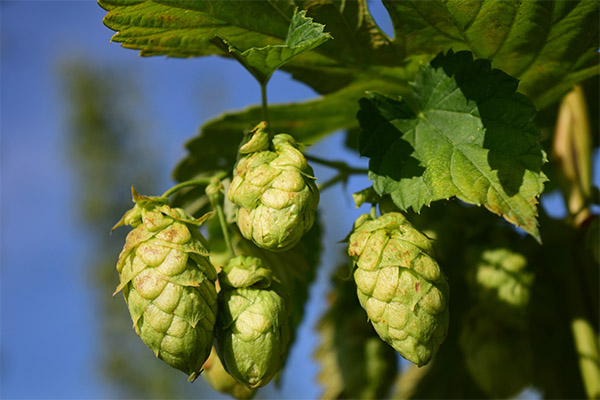
In folk medicine in different countries hop cones are recommended for epilepsy, various neurological disorders (including neurasthenia, insomnia, headache, neuralgia). The inflorescences of this plant are also used as a remedy for cardiovascular diseases - for example, arrhythmia, cardioneurosis, heart failure. Hops relieves swelling, helps to normalize blood pressure.
In the old days in Russia, hop cones were used to treat jaundice. However, in fact this disease has a viral nature, and the plant can not eliminate its cause (it is effective only for bacterial infections). So hop cones for hepatitis will not replace medical treatment, which includes modern drugs. But they have a beneficial effect on the liver, so they can be part of a complex therapy.
Infusions and decoctions of hop cones are used in the treatment of gynecological diseases, and both of an inflammatory nature, and those associated with hormonal imbalance. For example, during the menopause, when there is a decrease in oestrogen production, hop cones can help replace hormone therapy. Also preparations based on them folk medicine recommends for menstrual irregularities.
From the cones of hops make remedies for external use. These are decoctions, infusions and ointments that help with burns, fungal skin diseases, septic wounds and even scabies.
Thus, hop cones are used for both the treatment and prevention of diseases. And their range is quite wide, as shown above. Specific recipes will be given below. For example, hop cones are used:
- In CNS disorders accompanied by increased excitability, as well as in epilepsy. In such cases, either an infusion of cones prepared according to the recipe described below, or a less concentrated hop tea - 1 tsp of dried raw materials per glass of boiling water is used. If you drink 2 cups of such tea a day, it will act as a mild sedative. If you drink a cup of tea at night, it will save you from insomnia.
- Against colds and diseases accompanied by a cough. Drink two cups of tea a day, prepared according to the recipe described above. Against coughs are also effective rubbing the chest or essential oil obtained from the cones of hops, or vegetable oil infused in this raw material.
- With gout, fresh or dried hop cones are crushed and rubbed with butter or other fat that can be used for medicinal purposes. This creates an ointment that is used to rub on painful joints. It does not remove the causes of gout, which lie in a disorder of the salt metabolism, but relieves pain and inflammation. Also with gout and rheumatism shown baths based on infusion or decoction of hop cones. They are taken no longer than 15 minutes.
- When eczema make infusion of hop cones, and cook it in a water bath - take 1 tbsp. raw material in a glass of boiling water and heated for 20 minutes over low heat, putting a container of liquid in a saucepan with water. Then the remedy is cooled, filtered and made of it lotions, wetting it with cotton disks, which are then applied to the problem areas of the skin.
- For seasickness drink tea from hops - a cup a day will be enough, drink it a little at a time, small sips.
- With headaches prepare a decoction based on clover and hop cones. To do this, take 1 tsp. of each component for 1.5 cups of boiling water. Bring the product to a boil again, infuse for an hour, strain, and then drink before breakfast, lunch and dinner, 70 ml.
- In inflammatory kidney disease prepare an infusion. Take 1 tbsp dried cones, crush, pour 1 liter of boiling water and heated in a water bath for 15 minutes. The resulting remedy is a weak concentration, which is taken in 70 ml three times a day, immediately before a meal with a glass of water. It should be borne in mind that the infusion acts as a diuretic.
- In the treatment of gastritis with low acidity and inflammatory diseases of the gallbladder and bladder infusion is prepared as follows - take 1 tbsp cones on a glass of boiling water, the remedy then heated in a water bath for 15-20 minutes without bringing it to a boil. Then the infusion is removed from the fire, cool, strain and take 50 ml twice a day (but not at night - given its diuretic effect).
- When neuralgia make infusion: crush 1 tbsp dried hop cones, pour 0.5 liters of boiling water and leave for an hour in a sealed container. After that, the finished product is strained and taken 100 ml before each meal.
- With back pain caused by osteochondrosis and other spinal pathologies, as well as bruises, prepare a decoction. Take 1 tbsp. dry material, pour 200 ml. just boiling water and insist on a water bath for another 15 minutes. Do not drink this infusion. It is used to make compresses that are applied to the problem areas. Such a compress is kept until it cools down.
- In allergies prepare a remedy so - take 2 tsp. dried cones on a glass of boiling water, then, without bringing it to a boil, just heated over low heat for 10-15 minutes, leave until it cools to an acceptable temperature, then strain and take 3-4 times a day for 50-70 ml.
- In diseases of the liver take 2 tablespoons of juice derived from fresh hop cones, mixed with 200 ml of hot water and the same amount of boiled milk and drink 1 cup a day. In winter, the juice can be replaced by infusion of hop cones - 2 tbsp of crushed raw material for the same amount of water and milk. Insist the remedy for 7-8 hours, preferably left in a thermos overnight.
And the simplest phytotherapeutic remedy based on hop cones is obtained even without heating and preparation of infusions and decoctions. To cope with insomnia, it is enough to put dried hop cones in a linen bag and place it in the bedroom instead of the sachet. The calming effect is achieved due to the content of lupulin and valerian acid. Such a remedy can be used by those who are contraindicated to drink decoction.
Some folk recipes suggest stuffing hop cones with pads, intended directly for sleep - but so the body will receive too large a dose of essential oil.
Types of healing compositions
In folk medicine, various types of remedies are used on the basis of hop cones - these are infusions, decoctions and ointments. The choice of a particular option depends mainly on what kind of disease it will be used against.
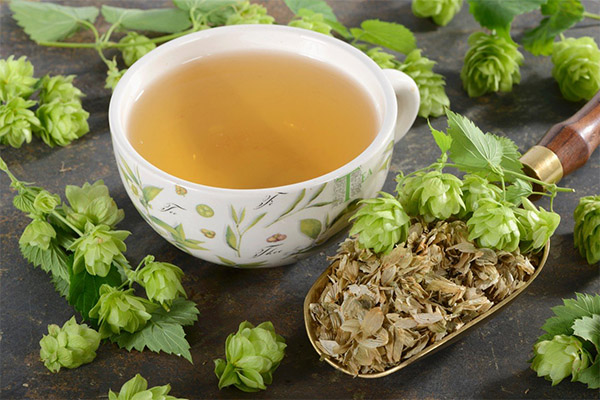
Infusion
This medicinal form is often used to fight insomnia or treat neurological diseases. There are many recipes. The simplest version would be this - take 20 grams of crushed cones for 0.4 liters of boiling water and insist for 2 hours. After that, the remedy is strained. The maximum concentration of the infusion can be 1:10, no more, otherwise an overdose will occur.
The infusion can be used for both internal and external use. For example, it can be added to the evening bath with warm water. Enhance its effect will help a couple of drops of lavender oil. Such a soothing procedure is recommended regularly, at least 5 times a week to achieve consistent results.
Tincture .
This remedy is prepared with vodka or alcohol solution. Take 1 tbsp. mashed dried cones and pour a glass of vodka or 40% alcohol solution. The container is left in a dark place for 10 days. Periodically, its contents are shaken. At the end of this period, the contents of the container is filtered and poured into a bottle of dark glass. Take such a tincture only 10-15 drops a day with a little water. In the old days it was considered an excellent anthelmintic. It also helps in various gynecological disorders.
Decoction
There are many recipes. The most effective as a sedative is a decoction prepared without heating in a water bath. To do this, take 1 tsp. dried cones for 100 ml of boiling water. This remedy is poured into a jar and placed for 15 minutes in a saucepan with hot water, then filtered and taken at night, an hour before going to bed. A cup will be enough, if you drink more - the diuretic effect will interfere with sleep.
Tea
This remedy differs from the usual infusion in a lower concentration. Take 1 tsp. without a handful of vegetable raw materials per glass of boiling water and insist for 15 minutes. To improve the taste, honey is added to the drink, because without it the taste would seem too bitter. If there is no certainty that hops will not cause allergies, you can start with a weaker concentration - 1 hop cone per glass of boiling water.
Ointment
To prepare the ointment take 2 tablespoons of cones for 100 grams of unsalted butter. The hop cones are crushed beforehand, then mixed very thoroughly with the fat. Keep such a tool only in the refrigerator. It is considered effective for a variety of skin diseases.
Oil
Essential oil of hops can be found in pharmacies and stores selling organic products. But in folk medicine, there is a widespread recipe for oil from hop cones, which is actually his oil extract, that is, an extract containing the maximum concentration of useful substances.
To prepare this remedy, take a glass jar (half a liter is enough). This container is filled with crushed or even better - mashed cones of hops, which are then poured with vegetable oil. It is best to take refined olive oil, but sesame oil and even sunflower oil will do. The oil is then left to infuse. Keep it in a dark place, because under the influence of sunlight it can oxidize. When the hops settle to the bottom and a little free volume appears in the container, add more oil. Shake the jar once a day. Influence the product for 2 days. After that, filter it and leave for another 3 days. And at the end of this period, the oil is considered ready.
Such a product is most often used for breast augmentation. It is applied to the skin of the bust and decollete with light massage movements. The oil itself is not heated, but it is better to apply it on a previously steamed body. Since, like any other herbal remedy, it can cause allergies, you must first test it on a small area of the skin. If discomfort, itching or burning occurs after applying the oil, do not continue using it.
The oil can also be used for skin care. Just like the ointment, it has a wound-healing effect, can be used to regenerate tissues, to nourish the skin (because it contains many vitamins and amino acids).
Cosmetic applications
The unique chemical composition of hop cones makes them an excellent cosmetic agent, which can significantly improve the condition of the skin and hair. You can find ready-made hop cone extract or make it yourself (for example, prepare an infusion). Adding a small amount of infusion to ordinary hair shampoo, will help get rid of seborrhea and make the curls more shiny and silky. Alcoholic tincture can be added to a facial tonic designed to treat acne.
And, of course, infusions and decoctions of hop cones can be used as a standalone remedy. For example, they can help cure acne and soothe irritated skin. To do this, take 1 tablespoon of cones, pour a glass of boiling water and insist for 60 minutes. The finished product is passed through gauze and used for daily washing. This infusion is used instead of a tonic - it takes away the greasy sheen from the skin, helps to narrow pores.
You can make from it a cosmetic ice and rub its diced skin. The flavonoids in this decoction will remove inflammation and restore freshness and youthfulness to the skin. Ice does not just cause pores to shrink, it improves microcirculation, and the vitamins, minerals, and beneficial substances contained in hop cones make the procedure especially effective.
On the basis of dried hop cones you can also prepare cosmetic masks, mixing these raw materials, for example, with kefir or sour cream. Such a mask whitens the skin, reduces inflammation, promotes the production of collagen and even fights wrinkles.
However, hop cones can also combine well with other natural ingredients that are widely used in home cosmetics - for example, with essential oils of lavender, olive and almond.
Infusion of hop cones prepared according to the classic recipe (20 g cones for 0.4 liters of boiling water) can be used to rinse hair after washing. Contained in it lupulin soothes irritation on the scalp, eliminates unpleasant itching, removes dandruff, has a beneficial effect on the hair after dyeing, restoring and strengthening their natural structure.
Against dandruff and hair loss is sometimes prepared and stronger solution in the ratio of 1:3 (for example, 100 g of plant raw materials for 300 ml of boiling water). This remedy infused for an hour, filtered, and then before washing rubbed into the scalp with massaging movements - this will ensure the flow of blood, and useful substances are better absorbed.
Contraindications to use
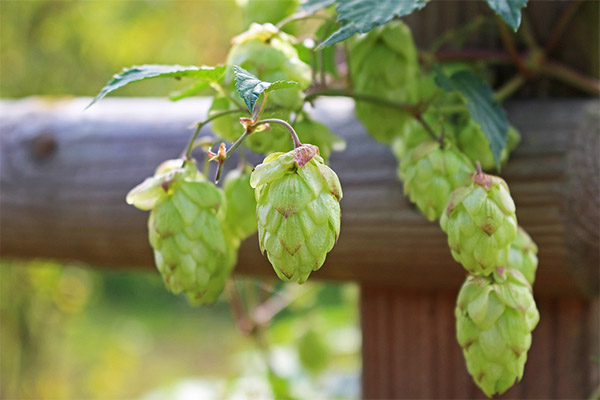
Hop cones can cause allergies, so they are contraindicated for people with hypersensitivity to this plant.
The use of hop cones is contraindicated in gastritis with hyperacidity, peptic ulcer, reflux esophagitis. Although by themselves they do not cause an increase in acidity levels, but with these diseases, the increased production of gastric juice itself can lead to unpleasant consequences.
It is very important to observe the correct dosage of hop cones. The fact is that in large quantities they can cause poisoning, which is accompanied not only by general malaise, but also by severe vomiting and headache.
In addition, hop cones contain phytoestrogens. And in excessive quantities this can lead to obesity and other unpleasant consequences like endometrial hyperplasia, sometimes even with vaginal bleeding.
Side effects of hop cones include not only hormonal failures, but also drowsiness, increased appetite, the appearance of vaginal discharge. If any of the above phenomena appear, it is necessary to stop taking the remedy and consult a doctor for advice.
«Important: All information on this site is provided solely for introductory purposes. Before applying any recommendations, consult a specialist. specialist. Neither the editors nor the authors shall be liable for any possible harm caused by materials."

